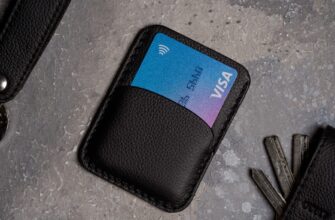- Why Your PC Bitcoin Wallet Choice Matters
- Critical Features in a PC Bitcoin Wallet
- 1. Electrum: The Lightweight Powerhouse
- 2. Exodus: Visually Stunning All-Rounder
- 3. Wasabi Wallet: Privacy Champion
- 4. Bitcoin Core: The Original Node Software
- 5. Atomic Wallet: All-in-One Solution
- 6. Guarda: Web3 Gateway
- 7. Ledger Live (Hardware Companion)
- Security Best Practices for PC Wallets
- Frequently Asked Questions
- Are PC wallets safer than mobile wallets?
- Can I recover Bitcoin if my PC crashes?
- Do desktop wallets charge transaction fees?
- Should I use a VPN with my Bitcoin wallet?
- How often should I update my wallet software?
- Final Recommendations
Why Your PC Bitcoin Wallet Choice Matters
Choosing the best Bitcoin wallet for PC is critical for security and control over your cryptocurrency. Desktop wallets offer robust features like full-node verification, advanced encryption, and direct blockchain interaction that mobile or web wallets can’t match. With over 70% of crypto hacks targeting online platforms, a properly secured PC wallet significantly reduces vulnerability. This guide evaluates security architecture, transaction fees, user experience, and unique features to help you select the ideal solution for managing BTC on Windows, macOS, or Linux systems.
Critical Features in a PC Bitcoin Wallet
Prioritize these elements when evaluating options:
- Security Architecture: Hierarchical Deterministic (HD) backup, two-factor authentication, and open-source code
- Transaction Control: Customizable network fees and replace-by-fee (RBF) support
- Compatibility: OS support (Windows/macOS/Linux) and hardware wallet integration
- Resource Efficiency: Storage requirements and synchronization speed
- Additional Utilities: Built-in exchange, Tor routing, or coin mixing
1. Electrum: The Lightweight Powerhouse
Since 2011, Electrum remains the gold standard for technical users. This open-source wallet connects to external servers rather than downloading the full blockchain, enabling near-instant setup.
- Pros: Cold storage support, hardware wallet integration, multi-sig capability
- Cons: Dated interface, steep learning curve for beginners
- Best For: Advanced users prioritizing transaction customization
2. Exodus: Visually Stunning All-Rounder
Exodus combines intuitive design with multi-asset support across 200+ cryptocurrencies. Its built-in exchange feature allows seamless swaps without leaving the wallet.
- Pros: Real-time portfolio charts, 24/7 live support, one-click backup
- Cons: Limited transaction fee customization, closed-source code
- Best For: Beginners and visual learners
3. Wasabi Wallet: Privacy Champion
Wasabi implements CoinJoin technology to anonymize transactions through trustless mixing. Runs as a full Tor client, masking your IP address during all operations.
- Pros: Zero-knowledge proofs, hardware wallet compatibility, coin control
- Cons: High RAM usage, mixing requires miner fees
- Best For: Privacy-focused investors
4. Bitcoin Core: The Original Node Software
The official Bitcoin wallet requires downloading the entire 400GB+ blockchain but provides maximum security through full network validation.
- Pros: Complete transaction verification, supports pruning, RBF enabled
- Cons: Massive storage needs, slow initial sync
- Best For: Network supporters and maximalists
5. Atomic Wallet: All-in-One Solution
Atomic offers non-custodial storage with atomic swap capabilities for direct peer-to-peer trading. Includes portfolio tracking and staking for 30+ proof-of-stake coins.
- Pros: In-app purchases with credit cards, 12-word backup phrase
- Cons: Occasional swap rate discrepancies
- Best For: Multi-coin traders
6. Guarda: Web3 Gateway
This cross-platform wallet features built-in Web3 browser access to dApps and NFT marketplaces. Supports Bitcoin, Ethereum, and 400,000+ tokens.
- Pros: No KYC requirements, encrypted local backups
- Cons: Higher exchange fees than competitors
- Best For: dApp users and NFT collectors
7. Ledger Live (Hardware Companion)
While primarily for managing Ledger hardware wallets, its desktop app provides secure portfolio tracking and direct coin purchases.
- Pros: Military-grade security, real-time balance updates
- Cons: Requires hardware device for transactions
- Best For: Large BTC holders using cold storage
Security Best Practices for PC Wallets
- Always enable automatic updates for wallet software
- Store recovery phrases offline on steel plates
- Use a dedicated computer for crypto transactions
- Verify download authenticity via SHA signatures
- Combine software wallets with hardware devices for large holdings
Frequently Asked Questions
Are PC wallets safer than mobile wallets?
Generally yes – PCs offer stronger malware protection, hardware security modules, and reduced phishing risks compared to mobile environments. However, they require rigorous OS hardening.
Can I recover Bitcoin if my PC crashes?
Yes, with your 12-24 word recovery seed. This phrase regenerates private keys on any compatible wallet. Never store seeds digitally – write them on physical media.
Do desktop wallets charge transaction fees?
Wallets themselves don’t charge fees, but all Bitcoin transactions require miner fees. Most wallets let you adjust fees based on urgency – higher fees ensure faster confirmation.
Should I use a VPN with my Bitcoin wallet?
Recommended for public networks. VPNs mask your IP address, preventing location tracking. However, wallets like Wasabi have built-in Tor routing for enhanced privacy.
How often should I update my wallet software?
Immediately when updates are released. Developers constantly patch vulnerabilities – delaying updates significantly increases hacking risks. Enable automatic updates where possible.
Final Recommendations
For most users, Electrum delivers the optimal balance of security and functionality. Beginners should start with Exodus for its guided experience, while privacy advocates need Wasabi Wallet. Always pair software wallets with hardware devices like Ledger for significant holdings. Remember: your wallet choice determines who controls your keys – and ultimately, your Bitcoin.








